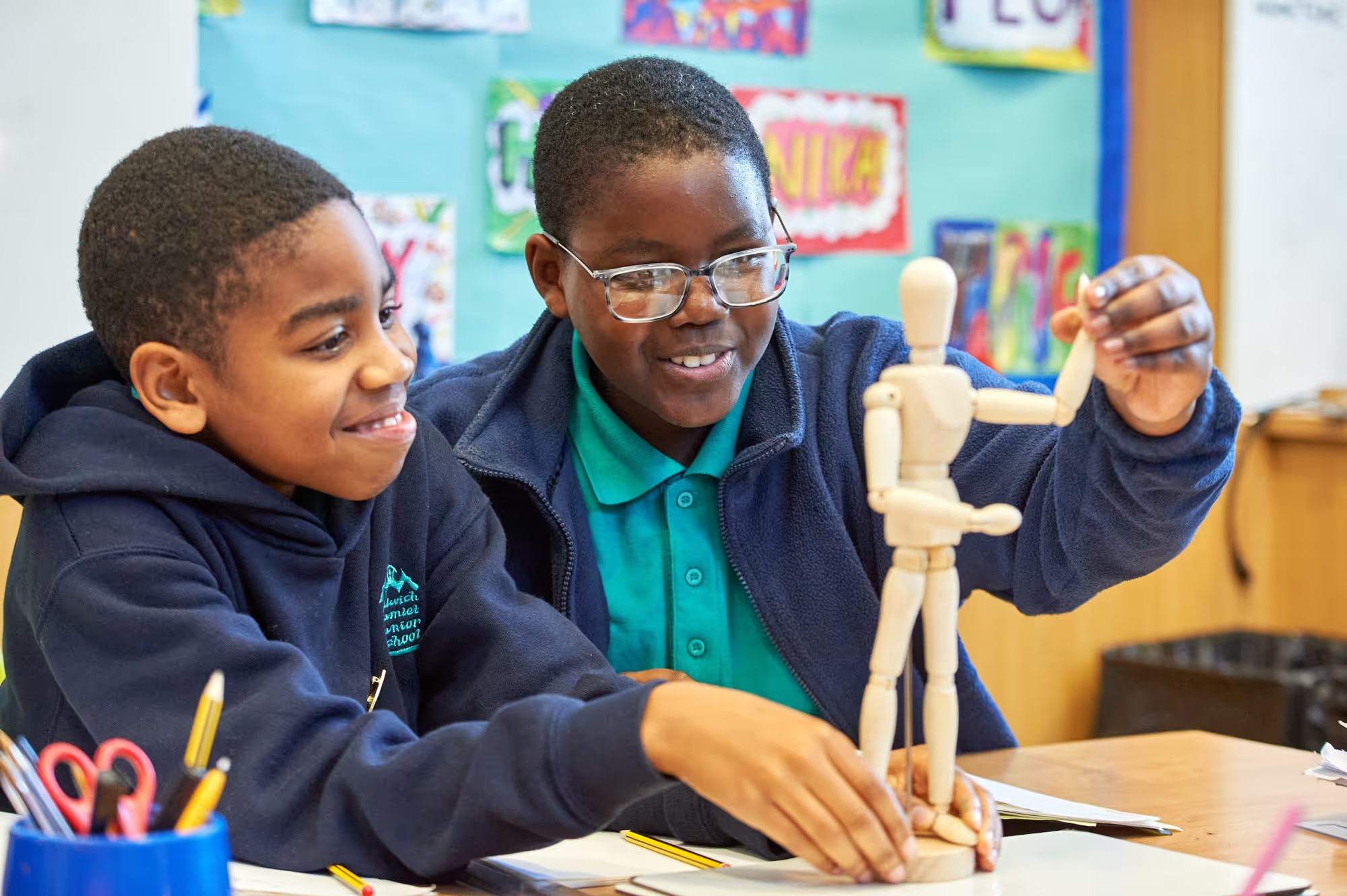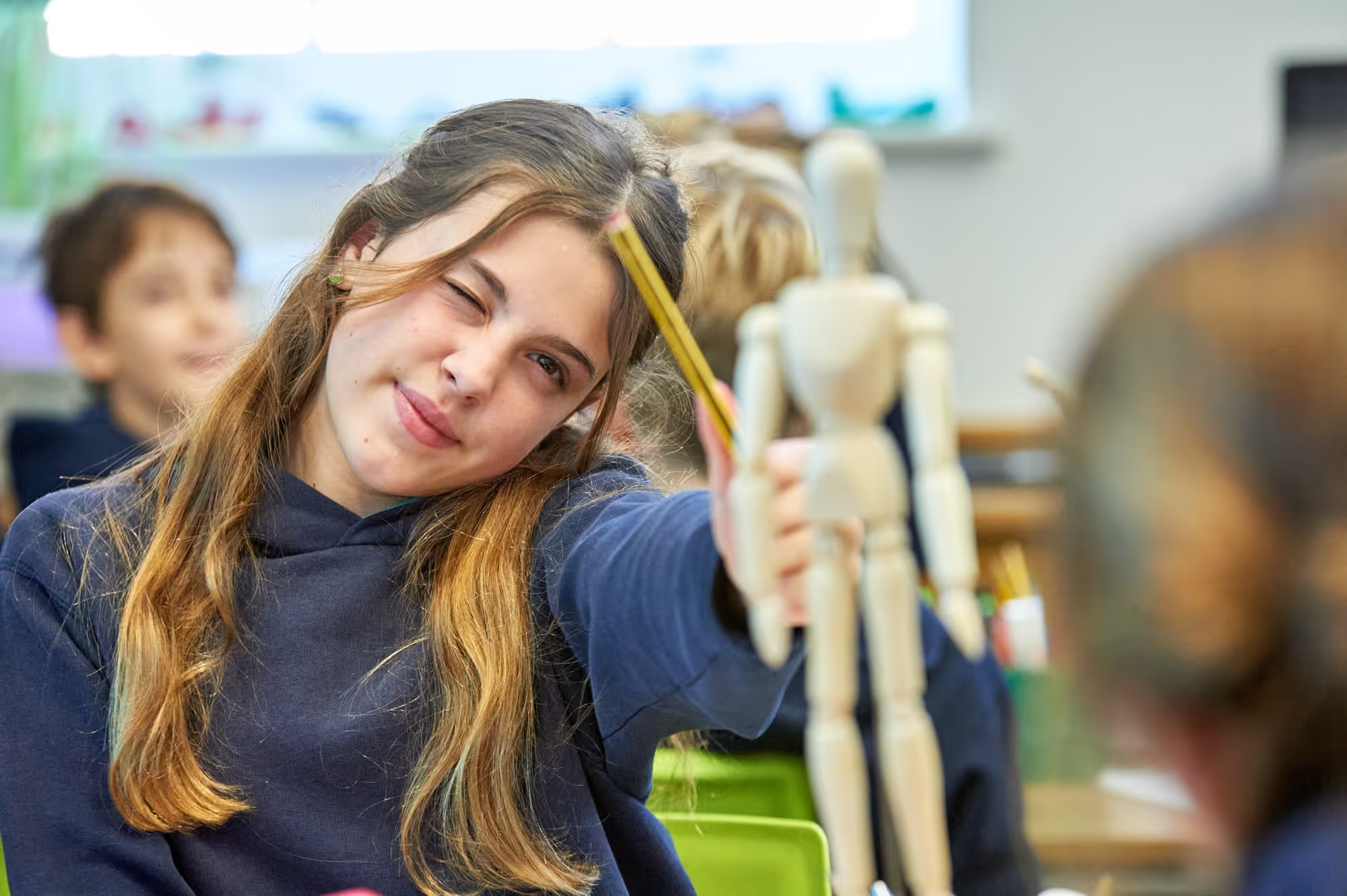

Art


Curriculum intent
Our art curriculum is designed to engage children in hands-on, visual experiences that help them see the world in new ways. We encourage every child to explore and express their ideas, feelings, and observations using a wide range of materials, techniques, and artistic approaches. Drawing inspiration from their surroundings, as well as global cultures and key moments in art history, children learn to think critically and develop a deeper appreciation for diversity and artistic expression
How we teach
Children are introduced to a wide variety of artists to spark curiosity and creativity. Influences include Rufus Ogundele, known for his vibrant African motifs, and Pacita Abad, celebrated for her textured mixed media work. Pupils use sketchbooks to experiment and refine their ideas, and explore key artistic elements such as line, shape, colour, texture, form, and pattern.
Trips and local experiences are integral to our approach. For example, Year 4 studies the work of Conrad Shawcross through visits to Dulwich Park, while classes visit Dulwich Picture Gallery to reflect on the legacy of the Old Masters and connect art to broader historical and cultural themes.
Impact
As they move through the school, children grow in confidence and skill, developing not only as artists but as thoughtful individuals who understand how art shapes and reflects the world around them. Their work is celebrated throughout the school—in classrooms, corridors, and shared spaces—and contributes to a vibrant, creative environment.
In January, our biennial annual art exhibition brings the whole school community together, showcasing final pieces alongside sketchbooks that chart the creative journey behind each work. We are also proud to exhibit selected pupil artwork at North Dulwich Station, giving the public a glimpse into the talent and imagination of our young artists and strengthening ties with the wider community.
How you can help at home
Support your child’s creativity by providing materials for drawing, painting, and making at home—simple items like pencils, paints, recycled materials, and fabric scraps are ideal. Visit local art galleries, exhibitions, or cultural landmarks together and encourage your child to share their thoughts and questions about what they see. These shared experiences help deepen artistic appreciation and spark new ideas.
